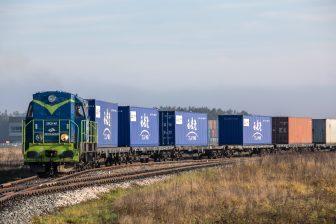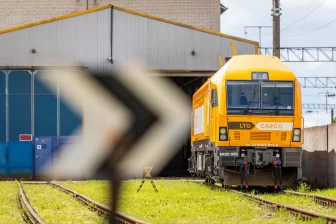
Brexit deal does not mean companies can sit back and relax
The fact that a Brexit deal has been signed by the UK and European counterparts does not mean that companies can now sit back and relax. They should still prepare for the worst. That is the common message to the logistics industry dealing with the UK.
On Wednesday 14 November the UK Cabinet gave its collective backing of a deal formed by the UK and EU negotiators regarding the Brexit. The UK is to remain in the European customs union. This means that no additional tariffs are charged on goods and services moving between the UK and Europe. If this is to remain, the logistics sector will not face the increase in costs and customs procedures it was warned for.
Good news
The detail of the agreement, which will go before Parliament tomorrow (Thursday), includes essential elements which will allow continued frictionless movement of goods and maintain the integrity of the UK’s supply chain. Remaining in the Customs Union will maintain seamless transport of goods and services between the UK and the EU until a new trade agreement can be negotiated, while the protection of citizen’s rights, both in the UK and the EU, will safeguard the logistics workforce”, said the Freight Transport Association (FTA).
“A transition period, which FTA has been lobbying for, will enable Britain’s businesses to prepare for a seamless transition to new trading arrangements, without concerns over a cliff edge which could be disastrous for the supply chain. Today’s news is a decisive step in the right direction, and FTA calls on Parliament to respect these crucial economic factors in deciding how it votes, to avoid a disorderly departure from the EU which could cause untold problems for manufacturers, retailers and exporters and protect the ability for Britain to keep trading”, the company added.
No agreement yet
Although the deal is good news for the But, there is no reason to stop preparing for change. First, the agreement signed between the negotiators and approved by the British Cabinet is still to be approved by the Parliament. According to commentators, there is still a lot that can happen in the political process. The deal can be rejected, which will probably result in a no-deal Brexit. If that is the case, there are no special arrangements and the UK will be considered a third country, with all the customs formalities in place.
If the deal is backed by Parliament, it is a temporary deal in place from 29 March, the day when the UK leaves the EU and for the remainder of the transitional phase, which lasts until June 2020. Until that time, there is opportunity for another solution, that is mostly aimed at avoiding a hard border between Northern Ireland and Ireland. According to experts, the deal is likely to be a precedent of an indefinite agreement, but the UK insists that it does not mean the country will remain in the customs union.
Preparations continue
Meanwhile, the preparations and trainings on how to prepare continue. This week the Dutch entrepreneurs association Evofenedex held a meeting for entrepreneurs, emphasising that they should still prepare for the worst. The chance of a hard Brexit is still there, and if a company is not prepared for such case, it can be devastating, the organisation argued. For entrepreneurs who find it difficult to determine which preparations they have to take when and how, the Dutch customs authorities have put together a Brexit toolkit that explains the necessary preparations.
Moreover, the customs union does not take away all formalities that come with third country trade. As the UK leaves the EU, companies will have to deal with matters such as safety, health and the environment which require new border procedures. As customs authorities have warned, companies trading with the UK will need to prepare for new customs procedures whatever Brexit deal may be concluded.
Today, Sessie Brexit takes place in Zeebrugge. This event considers which preparations companies should take, taking into account all possibilities. More information about this event can be found here (in Dutch).





